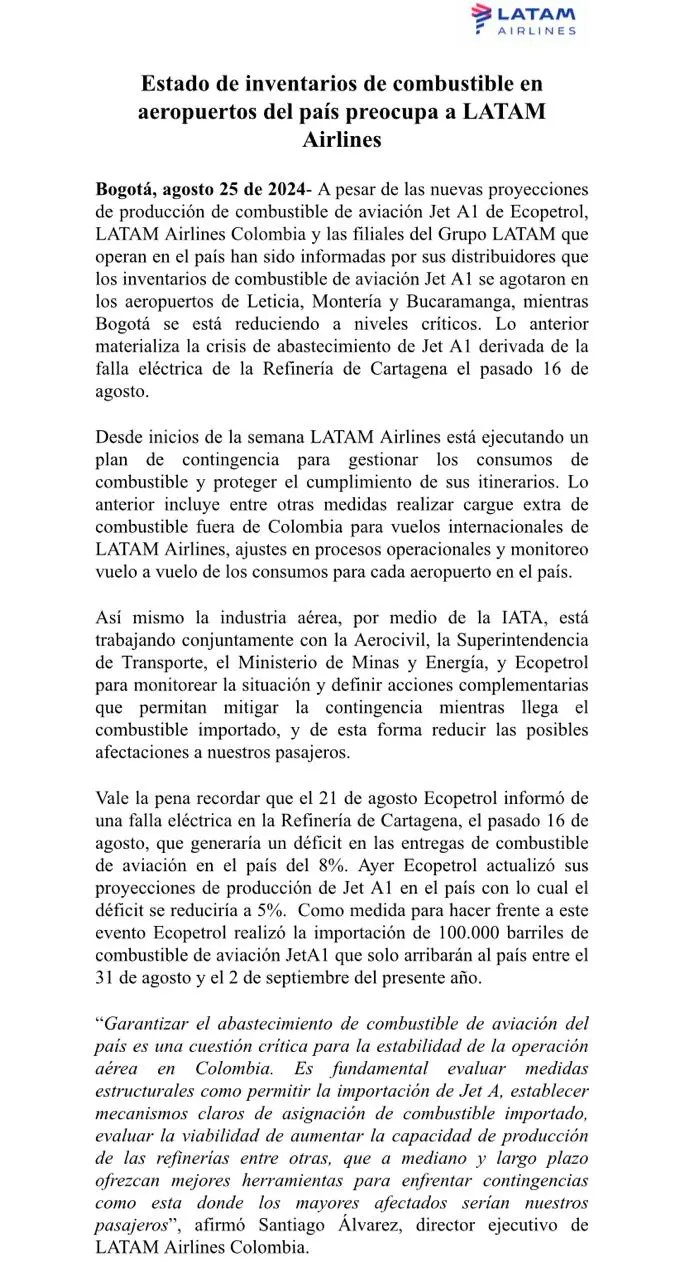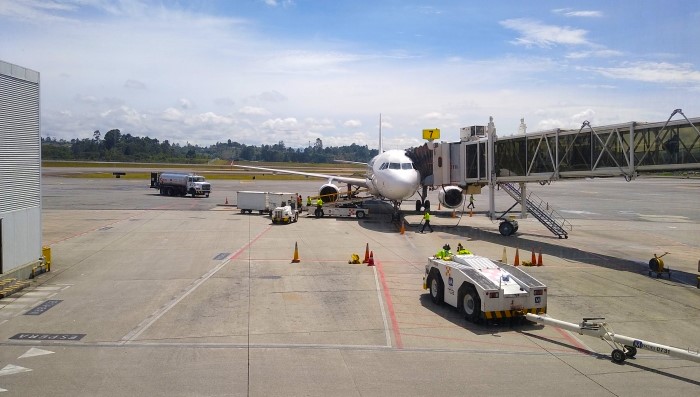- In a statement, Latam Colombia said that fuel supplies for aircraft at Leticia, Montería and Bucaramanga airports had been exhausted.
- The supply crisis at Jet A1 is said to be due to a power outage at the Cartagena refinery on August 16.
- According to Ecopetrol’s forecasts, there will be a deficit in Jet A1 production in the country, but this will be reduced to 5%.
Three Colombian airports have run out of kerosene, and the level in Bogotá is critical, warns LATAM. In a statement, Latam Colombia announced that the fuel supply for aircraft at the Leticia, Montería and Bucaramanga airports had run out, materializing the supply crisis at Jet A1, which was caused by a power outage at the Cartagena refinery on August 16.
However, the airline put in place an emergency plan early last week (16 August) to manage fuel consumption and ensure compliance with its schedules.
Eco-petrolColombia’s largest and most important oil company, this week announced a change in the delivery of aviation fuel, also known as Jet A1, after supplies were affected by a power outage at the Cartagena refinery on August 16.
According to Ecopetrol, although work began immediately to restart the refinery after 35 machines were affected, the disruption will lead to a shortage of jet fuel, which will affect airlines operating in Colombia.
This company imported 100,000 barrels of aviation fuel JetA1 which will only come into the country between August 31 and September 2 of this year.
“As a priority measure to deal with this event, the Ecopetrol Group is carrying out an import operation of 100,000 barrels of Jet A1 aviation fuel, which is expected to arrive in the country between August 31 and September 2, 2024,” Ecopetrol in detail.
Ecopetrol also added that this crisis will lead to an 8 percent reduction in aviation fuel supplies in August, which is why the International Air Transport Association (IATA) said it was monitoring the situation.
On the other hand, LATAM Colombia reported that the company had to reload fuel for international flights outside Colombia, adapt its operations, monitor flight by flight and evaluate consumption for each airport in the country.

The statement also states:
“The aviation industry, through IATA, is working with Aerocivil, the Transport Authority, the Ministry of Mines and Energy and Ecopetrol to monitor the situation and define complementary measures to mitigate the emergency during the arrival of the imported fuel, thus reducing the possible impact on our passengers.”
Accordingly Santiago Alvarez, CEO of LATAM Airlines Colombia,
“It is crucial to examine structural measures such as allowing the import of Jet A, establishing clear mechanisms for the allocation of imported fuel, examining the feasibility of increasing the production capacity of refineries, etc., which would provide better tools in the medium and long term to deal with eventualities such as this, which would most affect our passengers.”
Show image: YouTripReport


